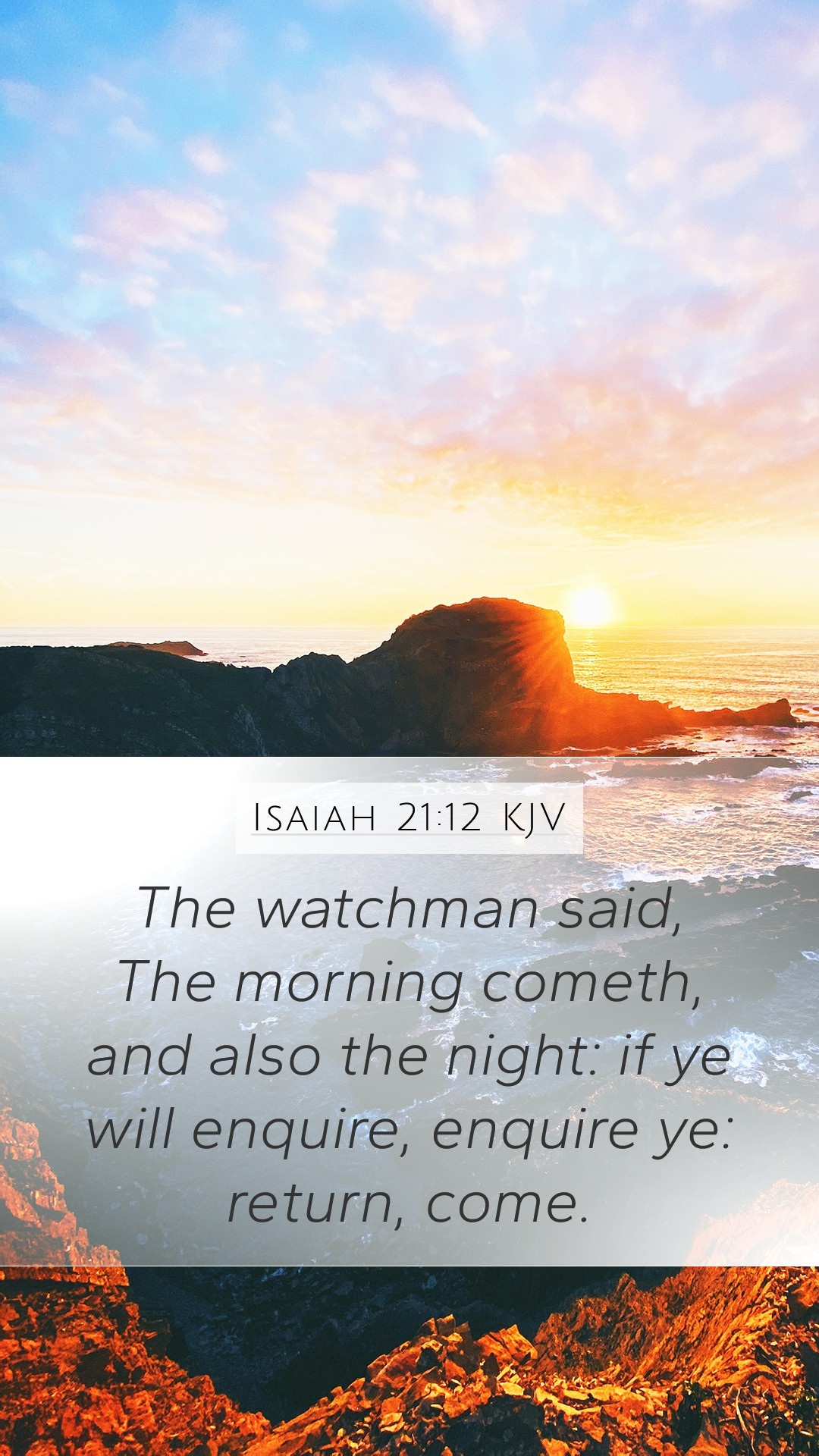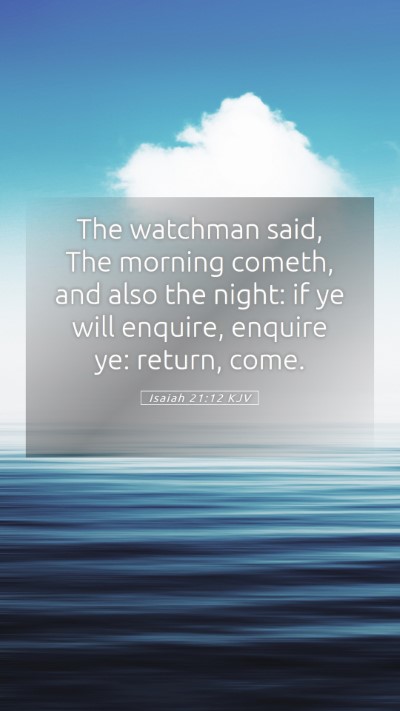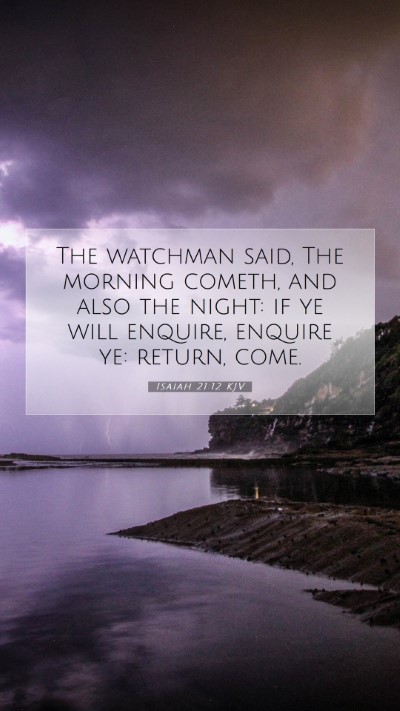Understanding Isaiah 21:12
In the quest for Bible verse meanings and Bible verse interpretations, Isaiah 21:12 presents a perplexing image that warrants careful examination. The verse states:
"The watchman said, 'The morning comes, and also the night. If you will inquire, inquire; return, come back.'" (Isaiah 21:12, NKJV)
Contextual Analysis
To fully grasp the meaning of this Bible verse, we must consider its historical and prophetic context. Isaiah prophesied during a tumultuous period in Israel's history, highlighting impending judgments and the eventual restoration of God's people. The surrounding chapters present a series of oracles against various nations that challenged Israel’s existence.
Commentary Insights
Matthew Henry
Matthew Henry notes that this verse depicts a watchman signaling the cyclical nature of time and events. The mention of "morning" and "night" symbolizes both hope and caution—emphasizing that while daylight brings clarity, the night may veil uncertainties. The watchman's invitation to "inquire" suggests a call to discernment; individuals are urged to reflect on their spiritual state and seek wisdom in a world fraught with challenges.
Albert Barnes
Albert Barnes elaborates on the role of the watchman as a metaphor for prophetic awareness. The duality of "morning" and "night" serves to illustrate the contrast between hope and despair. The phrase "return, come back" can be interpreted as an exhortation to those who have strayed from their faith to seek restoration. Barnes highlights that the watchman's words provide both a warning and a promise, encouraging reflection and repentance among the people.
Adam Clarke
Adam Clarke emphasizes the significance of the watchman's message in the broader narrative of Isaiah. He interprets it as an allusion to the impending dawn of a new era of enlightenment following a period of darkness and despair. Clarke’s analysis points to the importance of vigilance and the responsibility of believers to remain alert in their spiritual journey.
Key Themes
- Vigilance and Prophetic Duty: The watchman's role reminds believers of the obligation to remain alert to spiritual truths and impending judgments.
- Time and Cycles: The imagery of morning and night provides a framework for understanding life's cycles of despair and hope.
- Call to Repentance: The invitation to inquire serves as a reminder of God's willingness to forgive and restore those who turn back to Him.
Application in Daily Life
In the context of modern-day challenges, this verse encourages individuals to:
- Seek Understanding: Engage in Bible study groups or online Bible study, focusing on scriptural insights that illuminate personal circumstances.
- Reflect and Assess: Regularly assess one’s spiritual journey, and if necessary, take steps to realign oneself with God's path.
- Embrace Hope: Recognize that periods of darkness can serve as a prelude to a new beginning, embodying the essence of rebirth and renewal.
Related Scripture References
- Isaiah 60:1-3 - A promise of light and glory for God's people.
- Matthew 24:42 - A call to watchfulness as believers await Christ's return.
- Jeremiah 29:11 - God's plan for peace and hope amidst turmoil.
Conclusion
Isaiah 21:12 serves as a profound reminder of the cyclical nature of life, the responsibility of believers as watchmen, and the enduring invitation to seek God's presence. Engaging deeply with such Bible verse commentary enriches our understanding and helps us apply these insights to our lives today.


